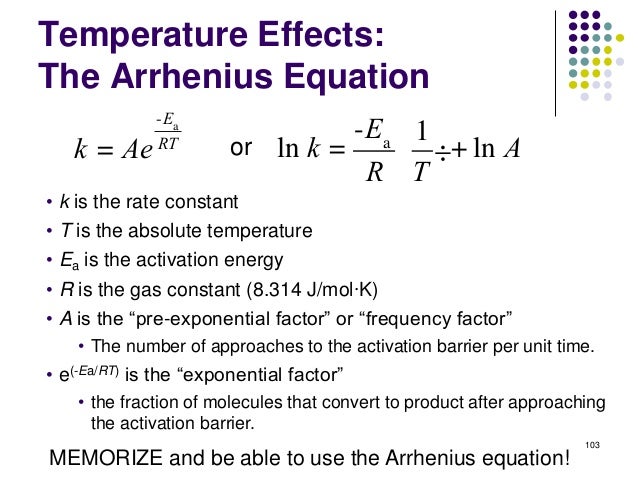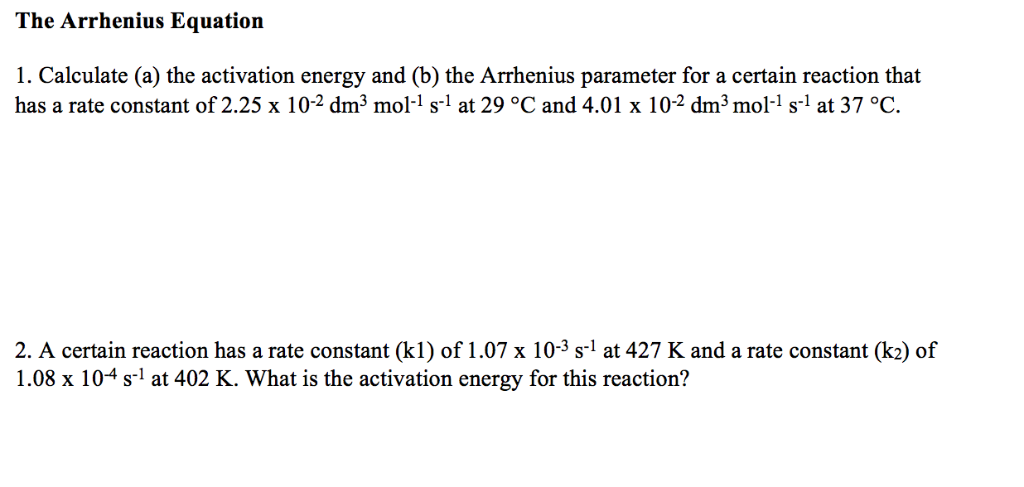

This is such a rule, so I have to remember it. When the specified temperature of the electrolytic capacitor is 70 ℃.The above is easy to calculate with positive integral powers of 2, but let’s calculate with a fraction that is not an integer. When the surface temperature of the electric controller was lowered by 30 ° C, it increased eight times to 40,000 hours. When the specified temperature of the electrolytic capacitor is 75 ° C.When the surface temperature of the electric controller was lowered by 20 ° C, it was quadrupled to 20,000 hours.


#ARRHENIUS EQUATION CALCULATOR HOW TO#
Therefore, how to lower the surface temperature of electrolytic capacitors is a showcase for power supply manufacturers. It takes 1 year at 95℃, 2 years at 85℃, and 4 years at 75℃. It is the life when the electrolytic capacitor is used at the maximum operating temperature of 105℃. App Link Arrhenius Equation Online Calculator. If an electrolytic capacitor with “105℃ for 5,000 hours” is operated for 24 hours, it will only last for half a year in calculation. The operating temperature is the surface temperature of the electrolytic capacitor, usually the surface temperature of the explosion-proof valve of the electrolytic capacitor. This means that the performance is guaranteed for 5,000 hours when used at the maximum operating temperature of 105 ° C for electrolytic capacitors. The electrolytic capacitor manufacturer sets a warranty time for each product. Arrhenius Equation can be used to find out the optimum. Now knowing the value of K 2, K 1, T 2 and T 1, Activation Energy (E a) can easily be calculated.

L₀ is the life of the electrolytic capacitor itself. Arrhenius proposed an equation to calculate the activation energy(E a) of a chemical equation having rate constant K and temperature T in 1889. Naturally, an electrolytic capacitor at 105℃ is more resistant to use at high temperatures. Today, industrial power supplies are 105℃, but previously they were 85℃ products. ‘T’ is the maximum operating temperature of the electrolytic capacitor.


 0 kommentar(er)
0 kommentar(er)
